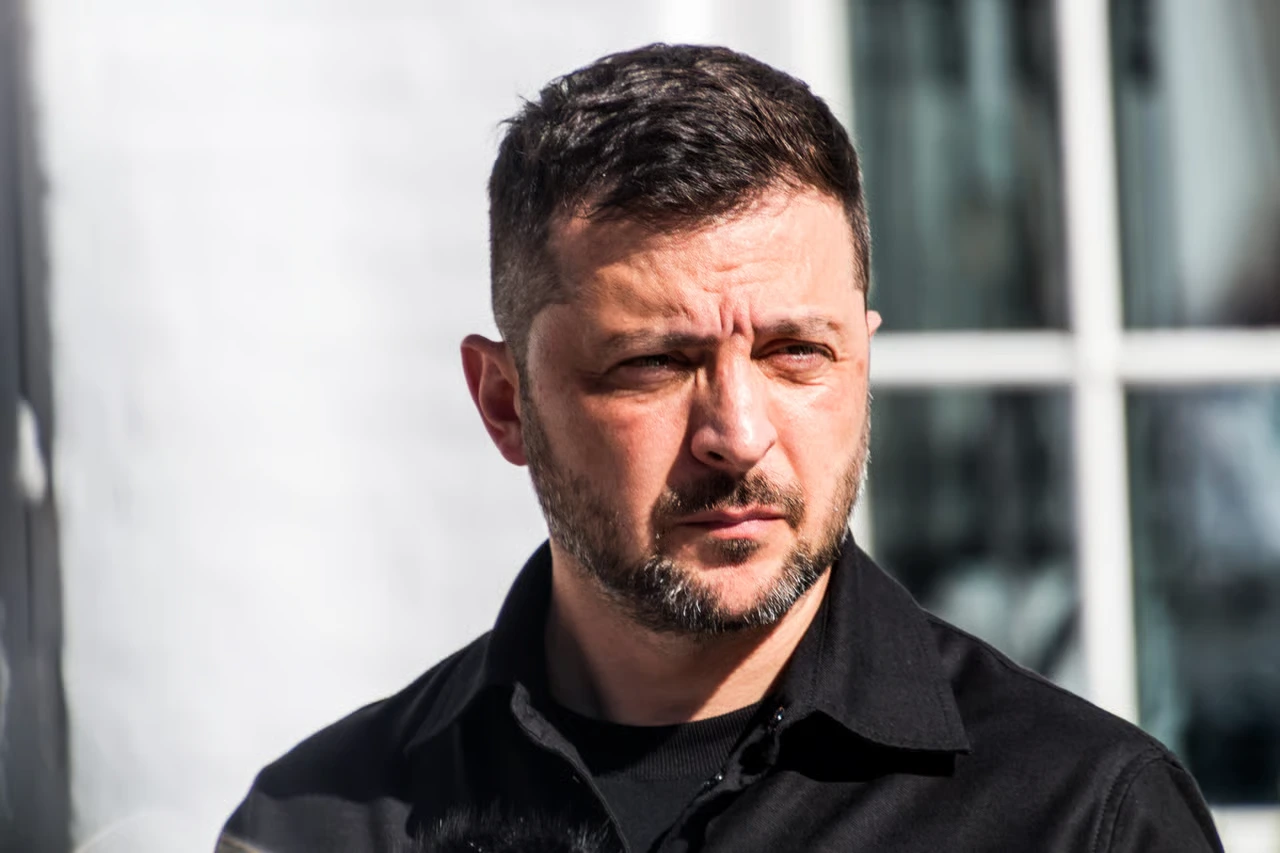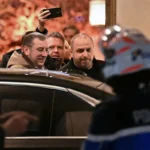According to POLITICO, hidden discontent is rising within President Volodymyr Zelenskyy’s Servant of the People party over his style of governance and efforts to narrow the space for independent institutions and criticism. At the center is a closed-door meeting in the Rada last week where, according to two MPs, the Ukrainian leader spoke sharply about those who, as he sees it, “do not unconditionally support a flattering image of Ukraine” before Western partners.
“You’re Either With Us or…”
POLITICO’s sources describe the atmosphere of the meeting as tense: Zelenskyy reproached lawmakers, activists and journalists for discussions of corruption and rights violations that, in his view, distract from the main task — the war and the need to consolidate external support. Hopes that the president would strike a conciliatory tone did not pan out. On the contrary, members of the faction say his rhetoric only reinforced the fear that it’s no longer just the opposition — more doubts are now being voiced inside the party itself.
One lawmaker admitted: “Although Zelenskyy said he would consult with us more often, that’s hard to believe. The overall line points to a further tightening of the screws at home. As far as the President’s Office is concerned, you’re either with Zelenskyy or you’re a ‘Russian agent.’”
The Anti-Corruption Setback and Its Aftermath
The summer attempt to subordinate two key independent anti-corruption bodies to the politically appointed prosecutor general became a crystallizing point of irritation even among Servant of the People members. According to POLITICO, the President’s Office forcefully pushed the bill despite many MPs’ doubts. But the day after it was signed, Kyiv saw the first street protests since the start of the full-scale war, and Europe warned of “democratic backsliding.” Zelenskyy had to backtrack.
According to faction insiders, Bankova then tried to shift responsibility onto the lawmakers themselves — not the first time unpopular initiatives have been portrayed as “someone else’s mistake.” The incident left many asking how the president’s team failed to foresee such a harsh public reaction when polling consistently shows that even during the war Ukrainians see corruption as the country’s main domestic problem.
A “Quick Hand” in Wartime — and Pushback
The president’s critics have long spoken of a populist impatience with parliamentary procedure and heightened sensitivity to criticism. His defenders respond that wartime requires a hard vertical of power and decisiveness. As the head of the President’s Office Andriy Yermak reminded POLITICO earlier this year: “Especially during wartime, decisions must be made quickly and clearly.” The team also points to Zelenskyy’s high favorability ratings.
Many critics, however, concede that the “noise of democracy” should not hinder defense. But they also recall historical examples of a different logic — for instance, Winston Churchill in wartime sought to bring the “best and brightest” into government regardless of party affiliation, broadening the coalition rather than narrowing it.
Mounting Centralization and Growing Irritation Inside the Faction
Not only opponents but also Zelenskyy’s allies are worried about the drive to centralize. According to three European diplomats in Kyiv who spoke with POLITICO, Western partners are also privately raising troubling questions — while avoiding public comment so as not to hand Russia a propaganda win. Inside Servant of the People itself, irritation is growing: regular ministerial reports to parliamentary committees have virtually disappeared, and the presidential administration is finding it increasingly difficult to muster votes for “priority” bills. MPs are weary of constant pressure to “line up” at Bankova’s command and fear they will pay the price with voters for the government’s mistakes.
This unease arose even before the attempt to “cut down” the anti-corruption bodies. Adding to the picture is a series of reshuffles that saw more independent and argumentative figures leave their posts. According to POLITICO, recent high-profile departures include Foreign Minister Dmytro Kuleba, the head of Ukrenergo Volodymyr Kudrytskyi, and the popular Commander-in-Chief Valerii Zaluzhnyi (now ambassador to the U.K.), whose views on war strategy diverged from the president’s.
Each such shake-up, the outlet notes, strengthened the influence of Zelenskyy’s “narrow circle” of close friends and advisers, while “dissenters” — or simply the independent-minded — were pushed out.
The U.S. Context: An Oval Office Spat and the Vance Effect
The overall mood was not improved by an episode in the Oval Office where, according to POLITICO, Zelenskyy deviated from the agreed script and got into a verbal spat with President Donald Trump — spurred in no small part by U.S. Vice President JD Vance. Against this backdrop, the Speaker of the Rada and Servant of the People MP Ruslan Stefanchuk made an independent statement on the need to quickly restore relations with Washington — a move many took as veiled criticism of the president. This fueled expectations that last week Zelenskyy would try to “calm” his own faction. But judging by the accounts of two lawmakers, the opposite happened.
According to them, the president was unhappy with the poor turnout — about a hundred Servant of the People MPs did not show up at all. Tensions rose when one attendee directly asked whether it was wise to “cut” the anti-corruption agencies precisely when they were closing in on figures close to the presidential administration.
New Bans and the “Logic of Political Selection”
In September, signs of “tightening the screws” multiplied, POLITICO notes. A group of roughly twenty former and retired Ukrainian diplomats and envoys fell under a new rule: lawmakers and officials may travel abroad only with special authorization from the authorities. The restriction also affected Kuleba. His words to the outlet sound like a diagnosis of the trend: “It is difficult to understand why, in the fourth year of the war, it suddenly became so important to ban a group of no more than twenty people from traveling abroad — people who have the contacts and authority to promote Ukraine’s interests among foreign audiences. The only explanation can be political. And once such political logic takes hold, it becomes possible to arbitrarily decide which categories of people are allowed or forbidden to do certain things. Ambassadors are only an example, but one that reveals a much deeper problem.”
The Central Nerve: War vs. Internal Corrosion
The key paradox of the moment in Ukraine is simple, POLITICO writes: a society mobilized by war still regards corruption as the main internal threat. Attempts to turn independent institutions into instruments of political control do not merely spark protest — they erode trust in the authorities precisely when the country most needs a broad trust coalition: from parliament and civil society to Western partners.
The bet on “speed at any cost” may continue to misfire — in parliamentary votes, on the streets, and on the international stage. History suggests that even in wartime strong leaders prevailed when they broadened the circle of decision-makers and — at a minimum — listened to those who think differently.
This article was prepared based on materials published by Politico. The author does not claim authorship of the original text but presents their interpretation of the content for informational purposes.
The original article can be found at the following link: Politico.
All rights to the original text belong to Politico.


















